When you need to request confidential information, crafting the right letter is essential to ensure clarity and professionalism. A well-structured letter not only conveys your request effectively but also reassures the recipient about the importance of handling the information with care. Whether you're reaching out to a colleague, a client, or a vendor, the tone should be respectful and concise, emphasizing the necessity of confidentiality. Ready to explore a sample template that sets the right tone for your request? Read on to discover how to create the perfect letter!
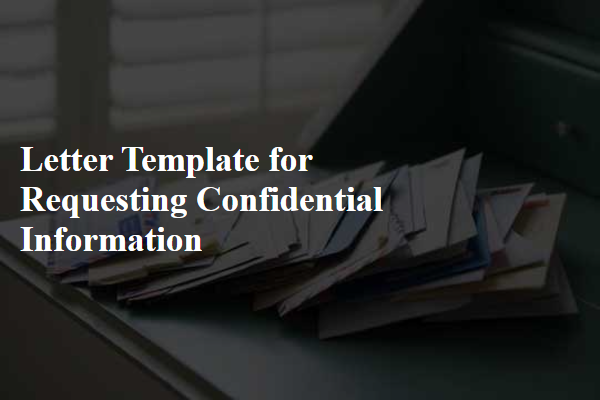
Clearly state the purpose of the request.
Businesses often require confidential information for various reasons such as compliance audits, financial assessments, or partnership evaluations. In the context of corporate governance, ensuring the privacy of sensitive data is paramount, especially under regulations like GDPR (General Data Protection Regulation) that safeguards personal information. Organizations might need access to proprietary trade secrets or client details to proceed with due diligence processes. Effective communication about the purpose of such requests is crucial, emphasizing transparency and mutual trust. Documents exchanged during these processes should be marked with confidentiality clauses to protect them from unauthorized disclosures.
Specify the type of confidential information needed.
Requesting confidential financial records is crucial for conducting a comprehensive audit. Specific documents include bank statements, tax returns, and payroll information from January 2020 to October 2023. Clarity on revenue streams and expense reports will enhance the transparency of financial operations. Additionally, employee compensation data is essential to ensure compliance with labor laws and financial regulations. Security measures should be implemented to safeguard this sensitive information during the exchange process.
Assure data protection and compliance with privacy laws.
In response to the growing emphasis on data security and privacy concerns, organizations are increasingly prioritizing the protection of confidential information. Compliance with privacy laws, such as the General Data Protection Regulation (GDPR) and the California Consumer Privacy Act (CCPA), is essential for maintaining organizational integrity while safeguarding personal data. The implementation of robust data protection measures, such as encryption, access controls, and regular audits, ensures that sensitive information is secured against unauthorized access and breaches. Additionally, establishing clear communication protocols regarding data handling and consent reinforces trust among stakeholders while adhering to regulatory requirements. Thus, organizations must actively address these considerations to uphold ethical standards and mitigate potential legal risks associated with data management.
Highlight the importance and necessity of the information.
Confidential information plays a crucial role in decision-making processes across various sectors, including healthcare, finance, and legal industries. For instance, sensitive patient records containing personal health information (PHI) are vital for healthcare providers to ensure compliance with regulations such as the Health Insurance Portability and Accountability Act (HIPAA). Similarly, financial data pertaining to market trends influences investment strategies significantly while adhering to the confidentiality regulations in the finance sector. In legal contexts, privileged communication safeguards the interests of clients, ensuring justice is served while maintaining trust in attorney-client relationships. The request for this information stems from the necessity to uphold these standards, enabling effective operations, fostering relationships, and protecting sensitive data from potential breaches or misuse.
Provide contact details for further communication.
Sensitive information requests require caution. Confidential information may involve personal data, trade secrets, or proprietary insights. Secure methods for communication, such as encrypted emails or secure messaging applications, should be used to protect the exchange. Clear identification (full name, title, organization) establishes trust. Specify the information needed (documents, reports, data sets) and its importance to your objectives. Provide comprehensive contact details, including phone number, email address, and mailing address to facilitate effective communication. Indicate preferred times for follow-up discussions to ensure timely responses. Prioritize confidentiality throughout the process to maintain integrity and compliance with relevant laws.

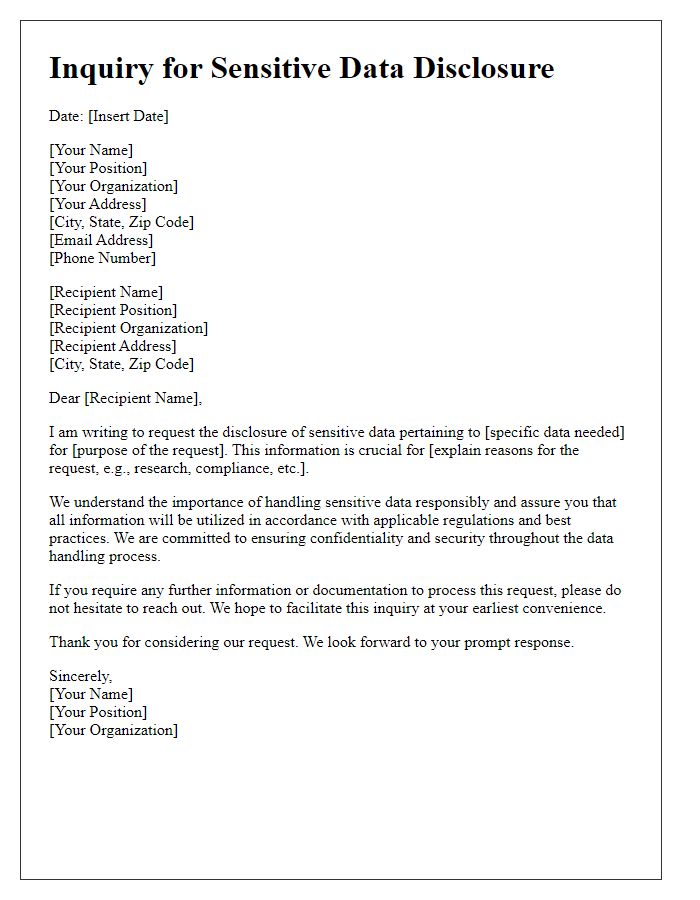
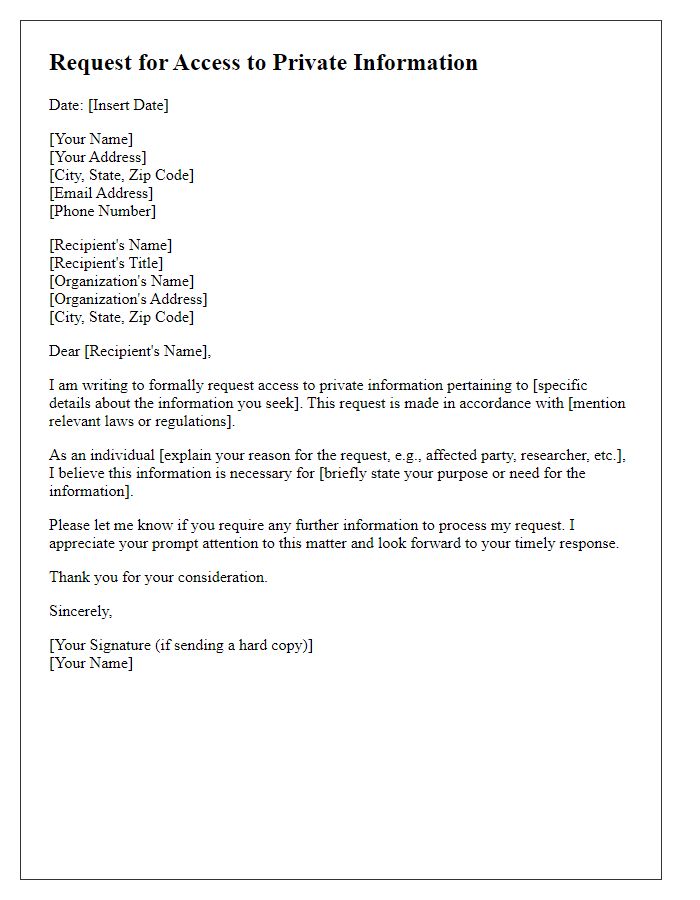
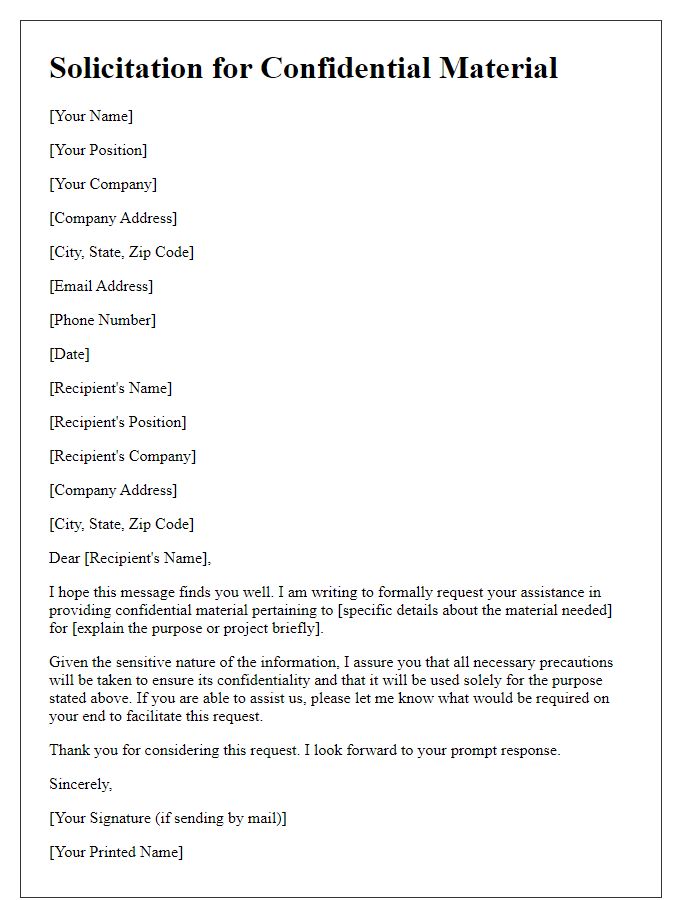
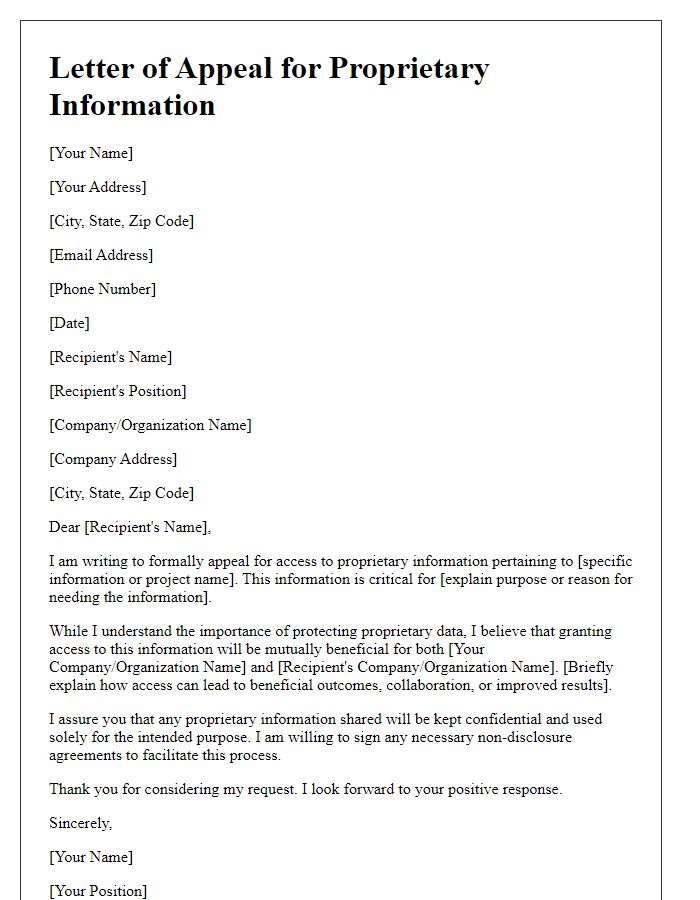
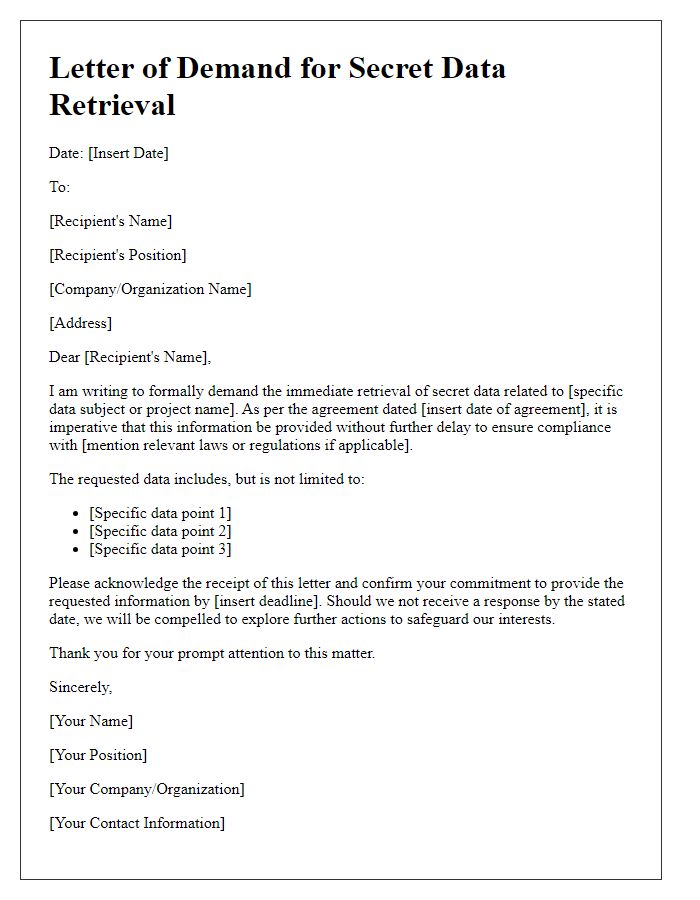
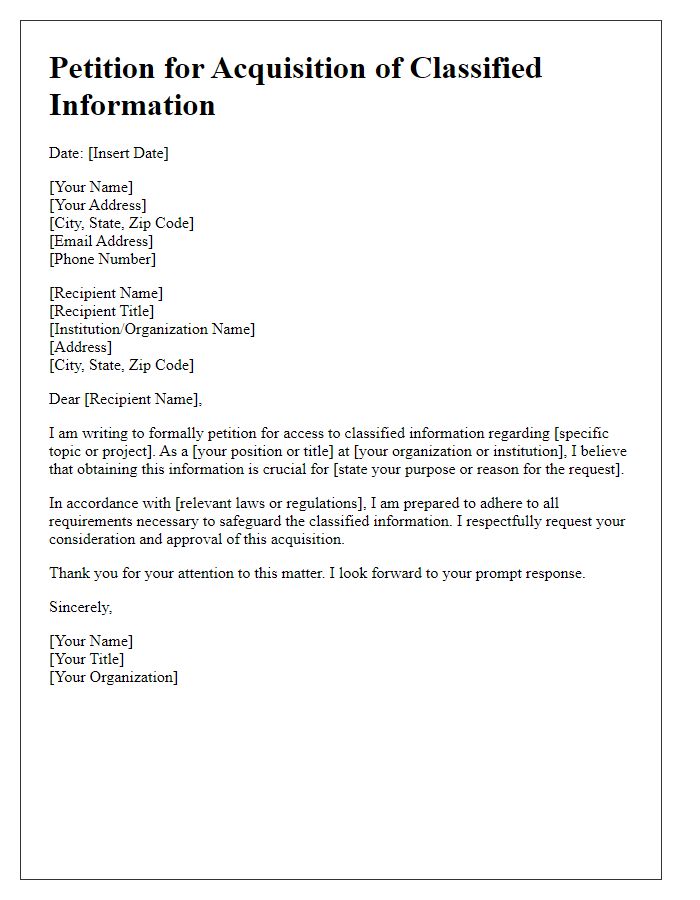
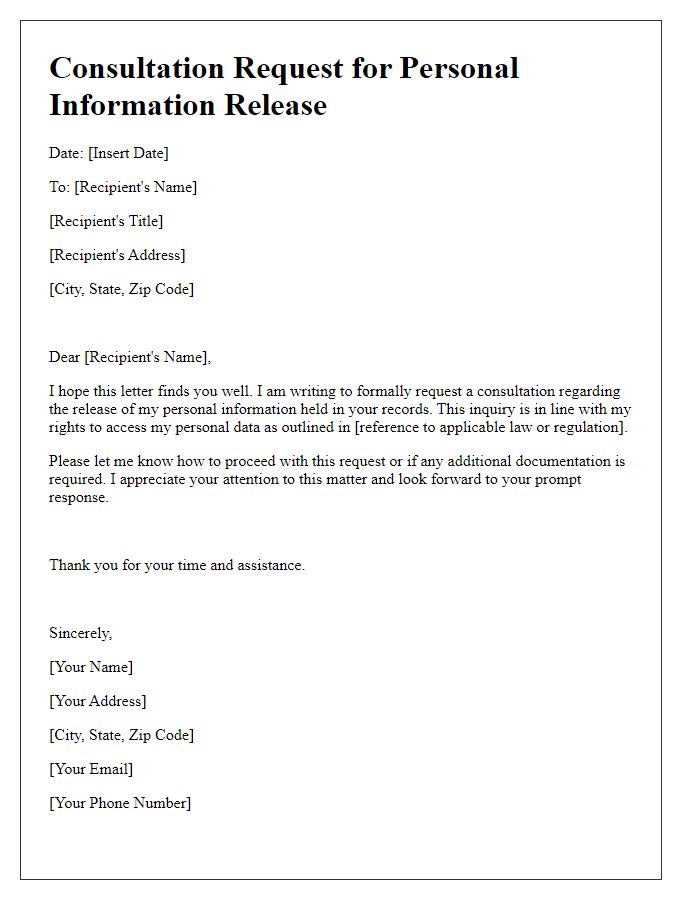
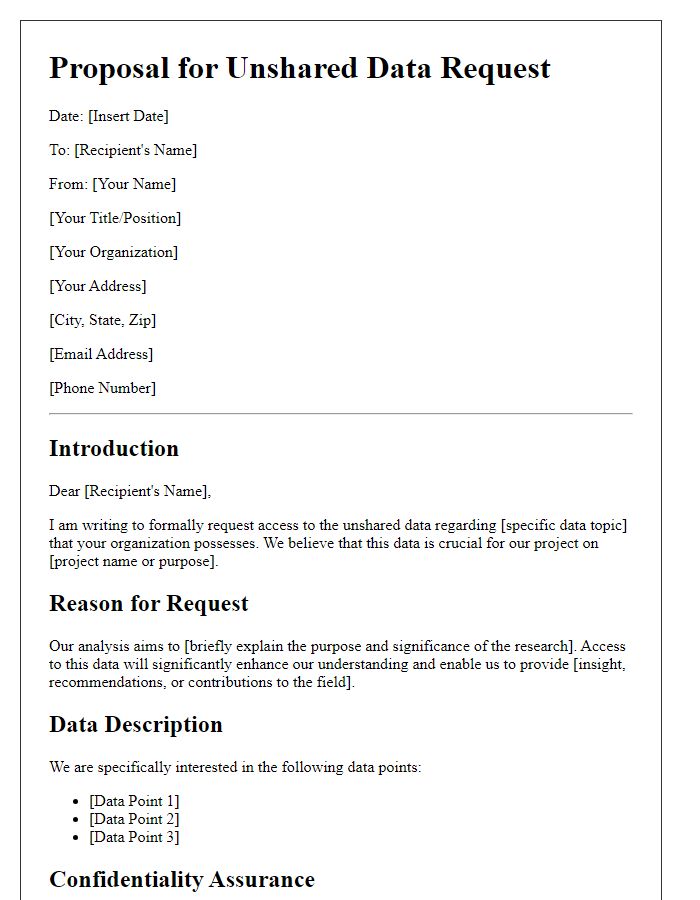
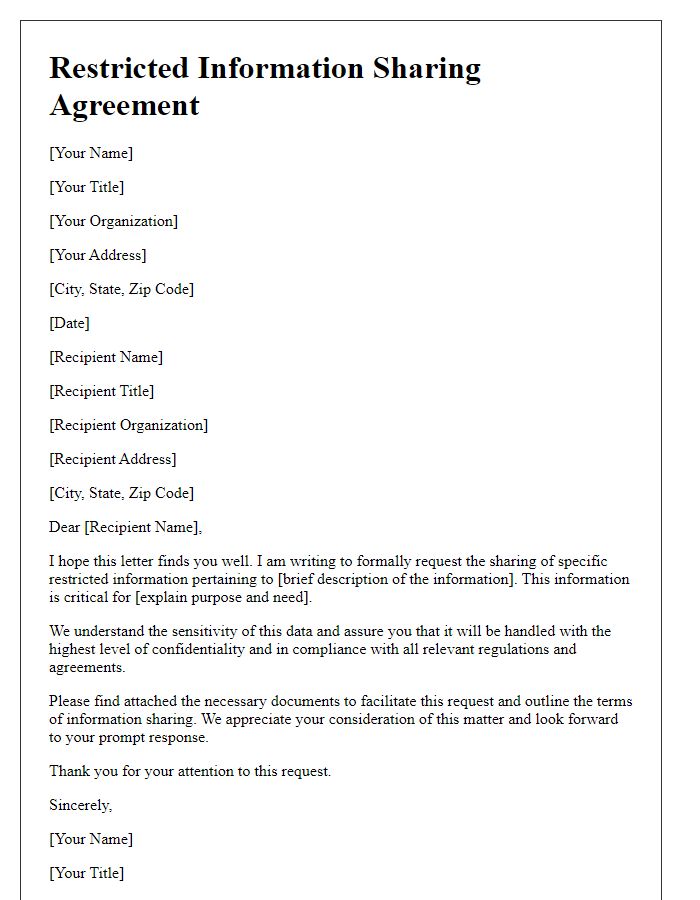
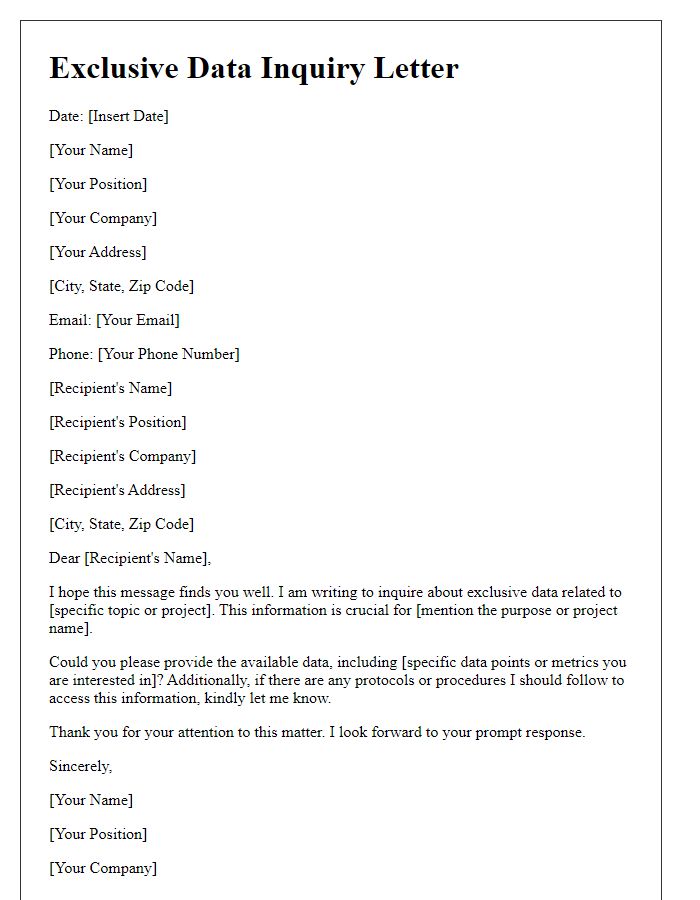


Comments